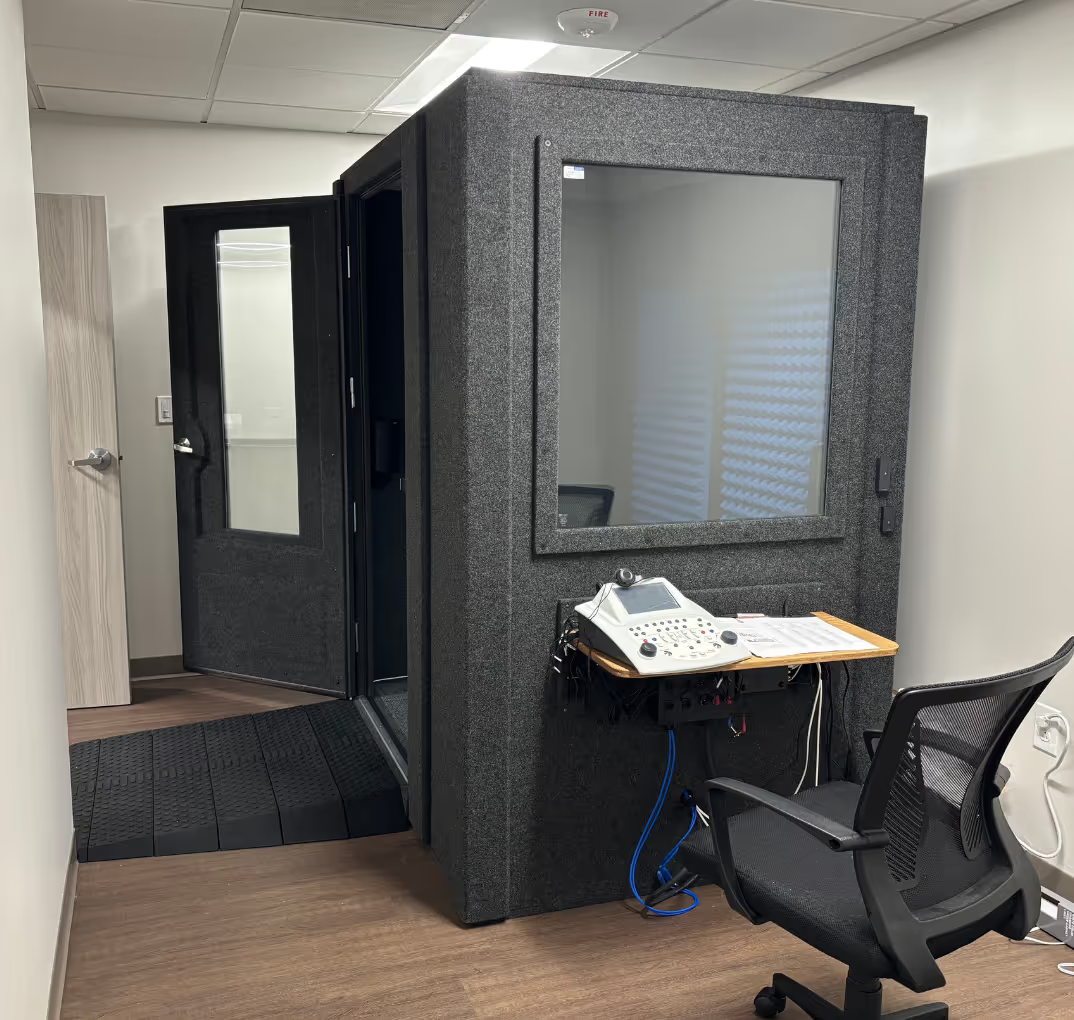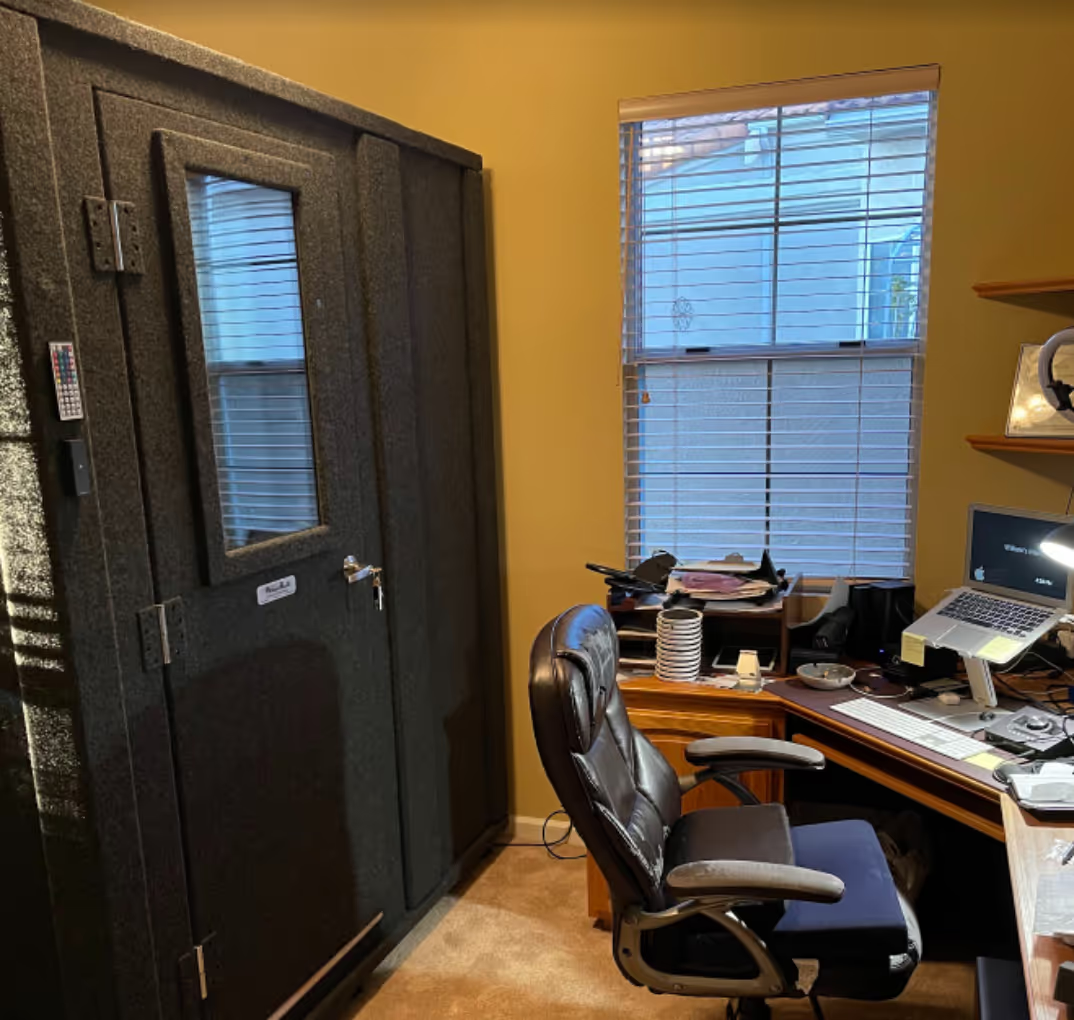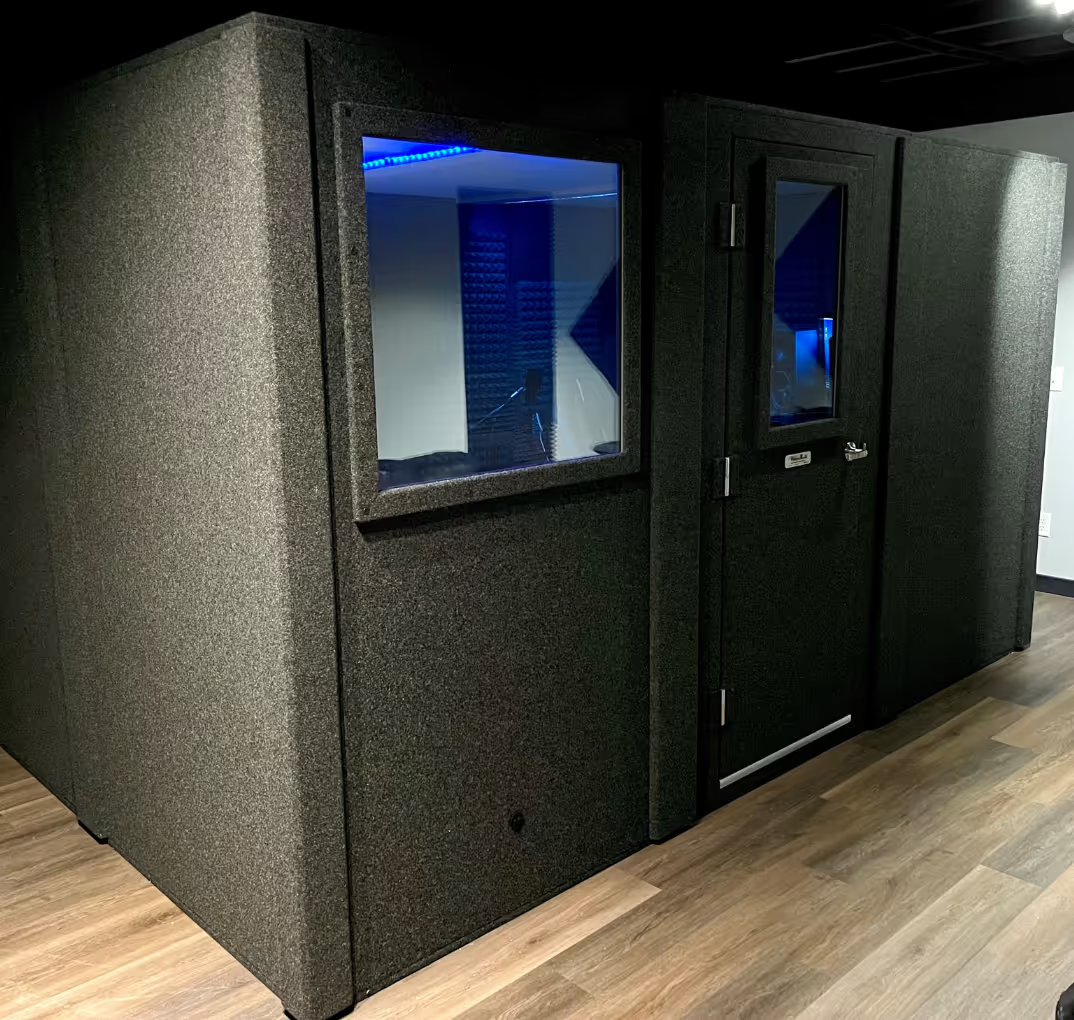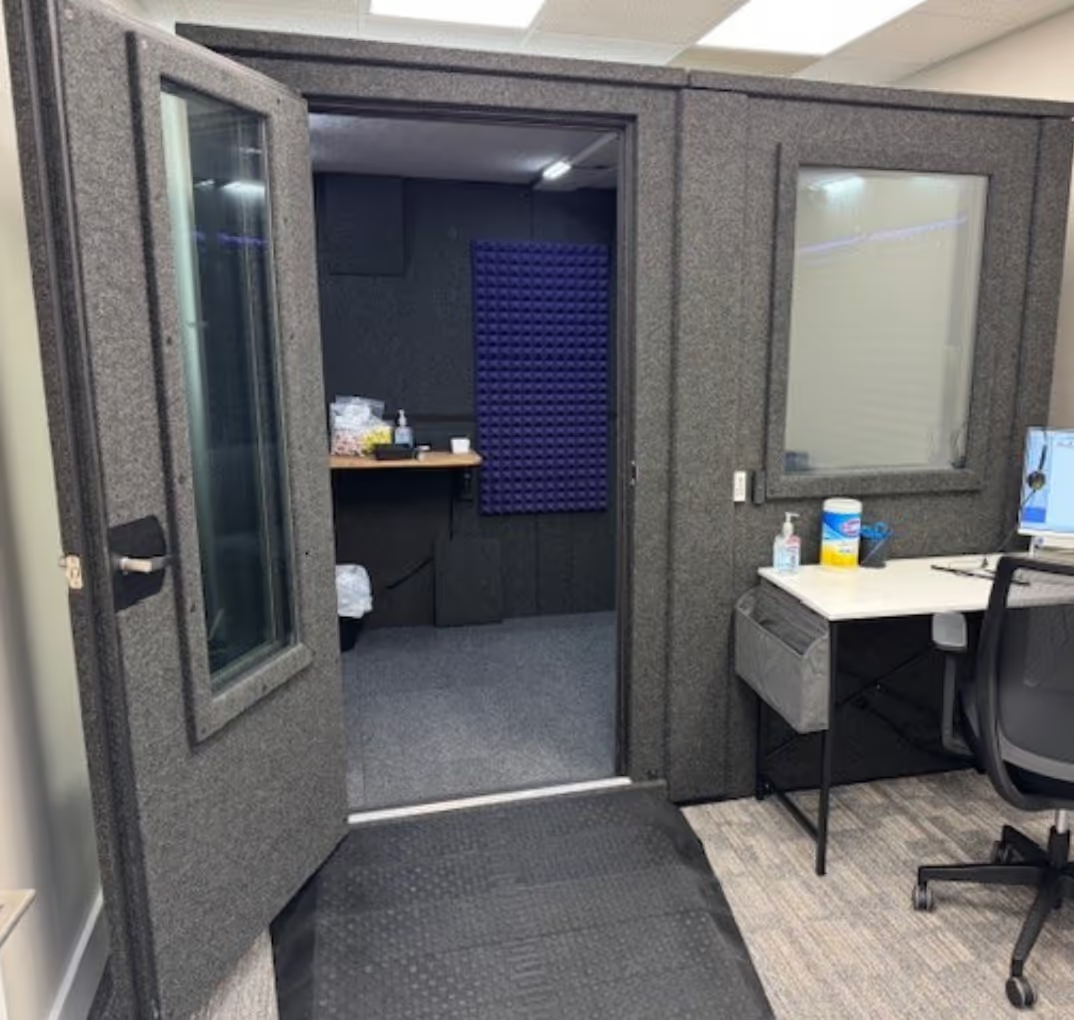“Silence is not the absence of something, but the presence of everything.” — Gordon Hempton, acoustic ecologist
Quick Take: Silence isn't just peaceful—it's powerful. In a world overloaded with sound, silence has been shown to sharpen focus, reduce stress, and boost mental and physical well-being. This updated guide explores seven compelling, science-backed benefits of silence, offers tips for cultivating it daily, and explains how WhisperRoom creates the ideal quiet space for work, wellness, and clarity.
1. Silence Enhances Concentration and Mental Clarity
Why is silence so effective for focus?
In a world full of noise and distraction, silence is a rare commodity that allows you to perform tasks more effectively. Forbes reports that successful business leader Vijay Eswaran has built his career on his ability to meditate in silence each morning, reflecting on the day ahead and prioritizing his thoughts. This practice, he says, boosts his productivity and decision-making abilities.
Scientific studies have demonstrated that periods of silence can be more relaxing than listening to music. For example, research indicates that working in silence leads to lower cortisol levels compared to working while listening to speech or noise.
Moreover, a study from Duke University observed that two hours of silence per day prompted cell development in the hippocampus, the brain region associated with memory formation.
And the Heart Research Institute notes that stress triggers the release of cortisol, and prolonged elevated levels can lead to health issues such as high blood pressure.
Takeaway: Silence gives your nervous system a chance to reset—no guided meditation required.
2. Silence Boosts Creativity and Problem Solving
What does silence do for creative thinking?
Without a doubt, creativity is an important part of life, and silence is an essential part of the creative process. In quiet environments, the brain experiences "default mode network" activity, which is linked to daydreaming, memory recall, and imaginative thinking. This mode is crucial for problem-solving and idea generation.
Example: Some of history's greatest minds—Albert Einstein, Sir Isaac Newton—embraced silence as part of their process. According to Inc., these visionary scientists often worked alone, finding focus and breakthrough ideas in solitude. Psychoanalyst Ester Buchholz explained that the best creative work is often completed in solitude or after a period of reflection, as noted in her book The Call of Solitude. (Psychology Today)
Tip: Schedule 30-minute blocks of silence during your workday. No distractions, just space for your mind to roam.

3. Silence Reduces Stress and Cultivates Inner Calmness
How does silence help us de-stress?
Silence provides a tranquil space that promotes a sense of peace, tranquility, and mental clarity.
In fact, according to the American Psychological Association's "Stress in America" report, 77% of people in the U.S. regularly experience physical symptoms caused by stress. A daily practice of silence allows for moments of relaxation that significantly reduce stress levels.
Takeaway: Just two minutes of silence can activate the parasympathetic nervous system, which slows heart rate and lowers cortisol levels.
Watch & Learn
Nick Seaver explores the power of silence in this insightful TED Talk on The Gift of Silence
4. Silence Enhances Learning and Information Retention
Can silence improve how we learn?
Absolutely. Studies have shown that noise exposure, particularly at a young age, can impair learning and memory retention. For adults, quiet environments boost concentration and allow for deeper processing of information.
Example: UPMC Health reported that children exposed to excessive noise struggle with learning and concentration. By creating silence, they can absorb information more effectively.
Tip: WhisperRoom Booths are often used by educators and students who need distraciton-free zones for study and practice.

5. Silence Supports Physical Healing and Brain Health
How does silence benefit the body?
Research has found that silent environments stimulate cell growth in the brain and may even support faster recovery after illness or surgery. Quiet time can lower blood pressure, improve immune function, and promote healing.
Evidence: A 2013 study published in Brain, Structure and Function found that two hours of silence daily promoted cell development in the hippocampus.
Example: Some WhisperRoom users have even configured their booths as quiet sleep pods in apartment settings, reporting better rest and next-day performance due to a more peaceful environment.
6. Silence Increases Patience and Mindfulness
Why does silence make us more patient?
Constant noise from media and daily life shortens our attention span and patience. Learning to embrace silence fosters mindfulness and calmness, which helps in dealing with stressors more gracefully.
Practical Use: Take 10 minutes of silence during your lunch break to reset your mind and boost patience.
7. Silence Helps Us Reconnect With Ourselves:
Why do we crave silence in a noisy world?
Constant noise from the media and our day-to-day lives causes many of us to miss out on the benefits of silence. In today's fast-paced world, almost everyone has a short fuse for frustration. Learning to enjoy silence cultivates calmness and peacefulness. When regularly practiced, your tolerance levels for becoming impatient will likely grow too. When you learn to savor silent moments, you'll have more patience in daily hassles like traffic jams and long lines at the store.
Silence gives us the space to reflect and reconnect with our values, intentions, and inner voice. In many meditation practices, silence is the gateway to mindfulness and deeper self-awareness. It’s not just quiet—it’s clarity.
Insight: When we turn down external volume, we turn up internal insight.
Final Thoughts
In a world filled with distractions, silence isn’t just a luxury—it’s a necessity. Embracing quiet moments allows us to focus better, heal faster, and find clarity in chaos. With WhisperRoom, reclaiming that space is easier than ever.
FAQs About Silence
Q: How does silence benefit the brain?
A: Silent environments stimulate the brain’s default mode network, enhance neuroplasticity, and support memory, focus, and emotional regulation.
Q: Why is being silent powerful?
A: Silence reduces external input and amplifies inner awareness. It allows space for self-reflection, deeper tought, and emotional clarity.
Q: Can silence really reduce stress immediately?
A: Yes. Just 2 minutes of silence can activate the parasympathetic nervous system, which slows heart rate and lwoers cortisol levels.
Q: Is silence more effective than meditation?
A: It depends on your goal. Silence creates space for mindfulness, and often funcitons as a precursor or companion to meditation.
Q: What's the best way to create silence in a shared space?
A: Try sound-dampening curtains, noise-cancelling headphones, or a modular sound booth like WhisperRoom.
Q: Can silence improve learning and focus?
A: Absolutely. Studies have shown that quiet environments make concentration easier and allow for deeper processing of information.
Q: How does silence help with physical healing?
A: Research indicates that silent enrionments stimulate brain cell growth and support faster recovery after illness or surgery.








.avif)
.avif)
.avif)


.avif)
.avif)

.avif)
.avif)
.avif)
.avif)
.avif)
.avif)
.avif)
.avif)
.avif)
.avif)
.avif)
.avif)
.avif)
.avif)

.avif)
.avif)







.avif)
































